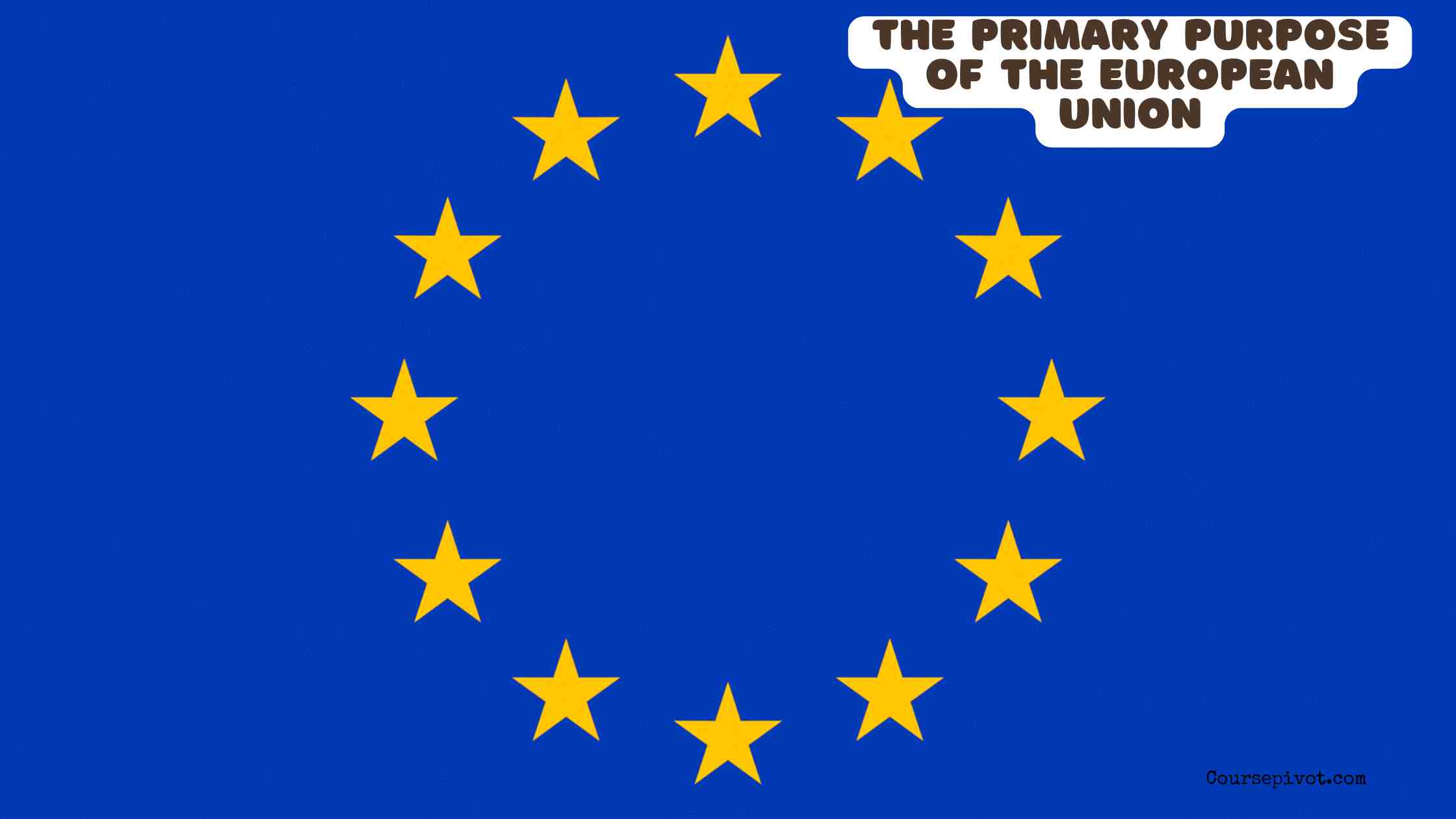
Five Important Purposes of the European Union
The primary purpose of the European Union (EU) is to create a common market, fostering free trade and economic integration among member states. Established through treaties like the 1957 Treaty of Rome, the EU has evolved to pursue additional goals that enhance cooperation, stability, and global influence. Beyond the single market, which enables the free movement of goods, services, capital, and people, the EU aims to address shared challenges and promote collective values.
Table of Contents
The blog explores five other key purposes of the EU, with examples, insights, and practical takeaways, empowering you to understand its broader impact on Europe and the world.
Promoting Peace and Stability
The EU seeks to maintain peace and prevent conflict among member states, rooted in its origins after World War II. It unites nations to avoid war. By fostering diplomatic ties and economic interdependence, the EU has helped ensure no major wars between members since its founding. For example, historical rivals France and Germany now collaborate closely within the EU, sharing policies on trade and security. This purpose drives initiatives like the European Peace Facility, which supports conflict prevention globally, reinforcing Europe’s role as a peace broker.
Enhancing Political Cooperation and Unity
The EU aims to strengthen political collaboration, creating a unified voice for its 27 member states on global issues. Collective action amplifies influence. Through institutions like the European Parliament and Council, countries coordinate policies on climate, migration, and foreign affairs. For instance, the EU’s joint sanctions on Russia during the 2022 Ukraine crisis showcased unified diplomacy. This purpose enables smaller nations, like Malta, to have a global impact through collective EU positions, enhancing democratic governance and shared decision-making.
Advancing Social and Cultural Cohesion
The EU promotes social progress and cultural unity by upholding shared values like human rights, equality, and diversity. It builds a sense of European identity. Programs like Erasmus+ enable students to study across borders, fostering cultural exchange—over 10 million participants have joined since 1987. The EU also enforces policies like the Charter of Fundamental Rights, ensuring gender equality and minority protections. For example, anti-discrimination laws benefit workers across member states, creating a more inclusive society.
Ensuring Environmental Sustainability
The EU prioritizes environmental protection and sustainability to combat climate change and preserve resources. Green policies shape the future. The European Green Deal, launched in 2019, aims for carbon neutrality by 2050, with initiatives like renewable energy investments and emissions regulations. For instance, the EU’s ban on single-use plastics has reduced waste across member states. This purpose drives innovation, like Germany’s solar energy advancements, and positions the EU as a global leader in climate action.
Strengthening Global Influence and Security
The EU seeks to enhance its global presence and ensure collective security through coordinated foreign and defense policies. It acts as a global player. The Common Foreign and Security Policy (CFSP) enables joint responses to threats, like peacekeeping missions in Africa or cybersecurity frameworks. For example, the EU’s 2025 sanctions on cyberattacks strengthened member state resilience. This purpose amplifies Europe’s geopolitical weight, allowing it to negotiate trade deals or mediate conflicts as a unified bloc.
Practical Tips for Engaging with the EU’s Purposes
Here’s how to explore and benefit from the EU’s goals:
- Participate in Programs: Join Erasmus+ for study or work abroad to experience cultural cohesion.
- Stay Informed: Follow EU news on platforms like Euronews or X to understand political and environmental initiatives.
- Support Green Practices: Adopt EU-inspired habits, like reducing plastic use, to align with sustainability goals.
- Advocate for Peace: Engage in local peace-building or human rights groups to reflect EU values.
- Learn Policies: Visit the EU’s official website (europa.eu) to explore trade, security, or social programs.
These steps connect you to the EU’s mission. A student who joined Erasmus+ gained cross-cultural skills, enhancing their career prospects.
Why These Purposes Matter
Beyond the common market, the EU’s purposes—peace, political unity, social cohesion, sustainability, and global influence—create a stable, prosperous, and values-driven Europe. They address modern challenges like climate change and geopolitical tensions, benefiting 450 million citizens and influencing global standards. Understanding these goals highlights the EU’s role in shaping a cooperative world.
Key Takeaways
The EU’s primary purpose is a common market, but it also promotes peace (e.g., France-Germany reconciliation), political unity (e.g., joint sanctions), social cohesion (e.g., Erasmus+), environmental sustainability (e.g., Green Deal), and global security (e.g., CFSP). These goals foster stability and progress. Dr. Hans Weber, a European policy expert, emphasizes that the EU’s multifaceted mission unites diverse nations, driving collective solutions for a better future.
Cite this article
You can copy and paste your preferred citation format below.
Martin, L. & Arquette, E.. (2025, September 16). Five Important Purposes of the European Union. Coursepivot.com. https://coursepivot.com/blog/five-important-purposes-of-the-european-union/



